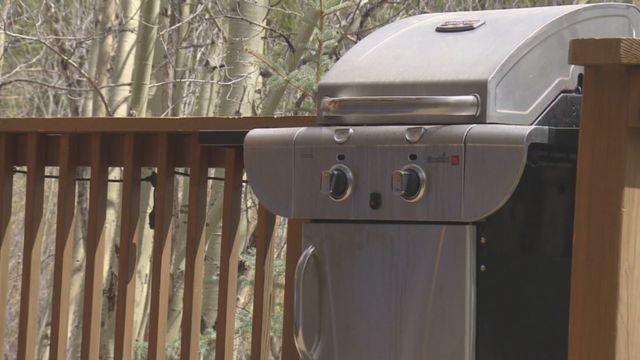As more and more insurance companies say they won’t cover HOAs that let people use gas grills on their decks or balconies, more and more homeowners associations in Colorado’s mountain towns are changing their rules to say that residents can’t use gas grills.
A lawyer named David Firmin, whose company works with about 2,500 HOAs, mostly in the mountains, said, “It will affect tens of thousands of people who live in condo associations.”
He says the change started about six to nine months ago when insurance companies started looking for ways to lower their risks, especially in places like the mountains of Colorado where fires are common. The insurance business has been responding in part to the Marshall Fire and the huge losses it caused, as well as the Maui Fire.
“The insurance is really what’s driving this bus,” Firmin said. “The perceived risk with these grills is just unacceptable risk for the insurance companies that are losing billions and billions of dollars.”
He says that over the last six weeks, he has changed the rules for about ten HOAs every week to make they not allow gas grills. He thinks that in the next six months, he will probably write new rules for 500 to 600 mountain HOAs that ban gas grills in the same way.
“They will either be required to remove gas grills or they will not get affordable insurance,” he said.
The insurance business says that every year, outdoor grills start about 6,000 fires and damage $35 million worth of property. Farmers Insurance says that since 2020, grill fires have cost the business $32 million.
Nick Strong is a business insurance risk manager in Steamboat Springs. He said that he has been telling HOA managers that they need to ban individual gas grills or risk losing their insurance.
“People care deeply about their grills,” Strong said. To someone, talking about their grill is like talking about their kids or dog—they have strong feelings about it.” It’s going to be a tough change.
Strong says the Marshall Fire was like “Pearl Harbor in the insurance world.” It showed that even towns on the Front Range could be destroyed by wildfires.
Strong said that he is telling the managers of the HOA that when their insurance is renewed in 2025, they will have to make new rules that say gas grills and fire pits and anything else with an open flame are not allowed.
“By 2025, many (if not all) carriers will require that prohibitions be written into the governing documents on the use of gas grills or similar devices (i.e. open flame) on any balcony, under any overhanging portion, or within 10 feet of any structure or overhang,” he said in a note sent to HOA managers in early June. A lot of insurance companies already have this rule in place for qualifying and loss control.
Strong says that all airlines already don’t allow charcoal and wood grilling tools.
These limits have been suggested for a long time by the National Fire Protection Association fire code and many city fire codes as well.
Both Strong and Firmin say that apartment and condo HOAs will probably have to buy insurance for their communities on the secondary market, where rates are ten to thirty times higher than what they pay now if they don’t follow the new rules.
For now, many insurance companies see electric grills as good alternatives to gas grills, and some associations are expected to set up central grilling and fire pit places that aren’t near buildings that could catch fire.
This year, Tim Huiting, President of a HOA community in Keystone, had to find a new insurance company. He said, “The insurance we finally found came with a requirement that we ban gas grills on decks or within ten feet of the building.” Some people in Huiting’s neighborhood bought electric grills earlier this year and are happy with them, he said.
“Thus, the gas grill band,” Huiting said, “which was very controversial at first, has become less of an issue.”
David Firmin says that the effects that can be felt in mountain HOAs are likely to spread.”I would ultimately expect to see this everywhere except the eastern plains,” he said.
The gas grill rule is likely to be applied to more places, Strong agreed: “I think it’s going to be consistent across the board and in metro areas.”




